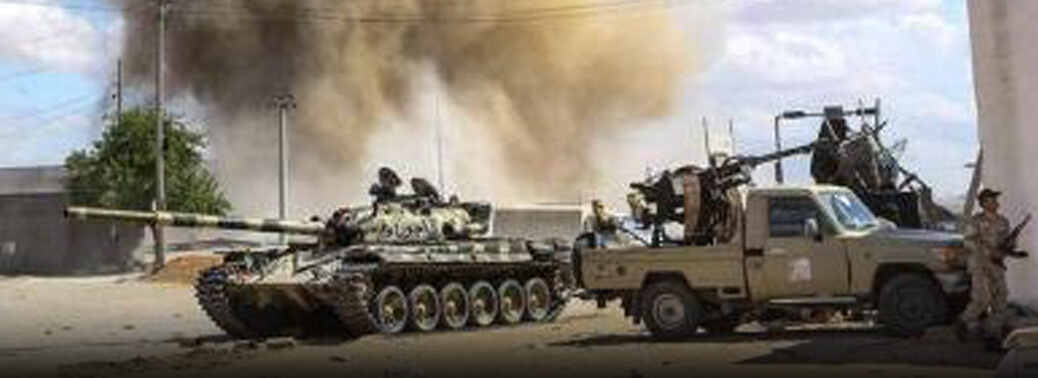PREDICABLE CHAOS IN LIBYA
19, Apr 2019

Prelims level : International (IR4)
Mains level : GS-II Governance, Constitution, Polity, Social Justice and International Relations
Why in News?
- The Iraqi-Libyan species of intervention, with UN ‘approval’ but under the West’s watch, is a post-Cold-War phenomenon
Details:
- Libyan militias battling for control of the country’s capital, Tripoli, launched airstrikes against one another
- The battle began when the Libyan National Army (LNA), a force in control of most of Eastern Libya, launched a surprise offensive on Tripoli. That attack threatens to reinvigorate the armed conflict in a country marred by instability since former dictator Muammar Qaddafi was deposed in 2011.
- The LNA is led by Gen. Khalifa Haftar, who fled to the US after his first failed coup attempt against Qaddafi. Haftar launched the latest attack in hopes of fulfilling a promise to unite Libya under his control. Standing in his way are armed factions defending the capital and its internationally recognized, United Nations-backed government, the Government of National Accord (GNA)
- The LNA first advanced on the southern and western outskirts of the capital in an assault that left dozens dead and many more wounded, the BBC reports Haftar claimed to have seized Tripoli’s airport — which is roughly 15 miles from the center of the city — in the LNA’s first strike, but fighting reportedly continued there.
Libya’s descent
- The United Nations recognised Tripoli’s administration is called the Government of National Accord, but is anything but that, being dependent on a motley of warlords, militant or moderate Islamists, secessionists and monarchists, all split on regional and ethnic lines. The Tripoli government commands no security forces, public administration scarcely exists, water, petrol and power shortages abound, and few banks operate.
- Thousands are fleeing towards Tunisia, and 180 people have been killed so far in the recent fighting. The oil-rich country, now a departure point for thousands of migrants travelling to Europe, once had one of Africa’s highest standards of living, free health care and education, with high female literacy and percentage of women in the workplace.
- Its inland waterway to green the eastern desert was called the world’s largest irrigation project. But after the western armed intervention supported by some Arab sheikhdoms, a perceptive commentator noted, “Nothing was certain, least of all what kind of country Libya would now become.”
Post-Cold-War phenomenon:
- The Iraqi-Libyan species of intervention, professedly with UN approval but actually under western control, is a post-Cold-War phenomenon, the motivation being to implant liberal democratic institutions and human rights, along with security concerns, usually thinly justified by 9/11 and lately the Islamic State.
- There were many reasons for the failure of state-building in the new protectorates.
- The new elites were never very different or more liberal than those deposed. Organised criminality was invigorated by opportunities created by the absence of proper law enforcement due to outsiders not understanding the consequences of their policies
- Whether in Libya or elsewhere, expeditionary interventions to implant human rights and democracy have a certain heuristic value in understanding the illusions of western hegemony which rose to prominence in our times and sought to mould the third world in its image.






